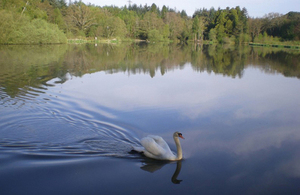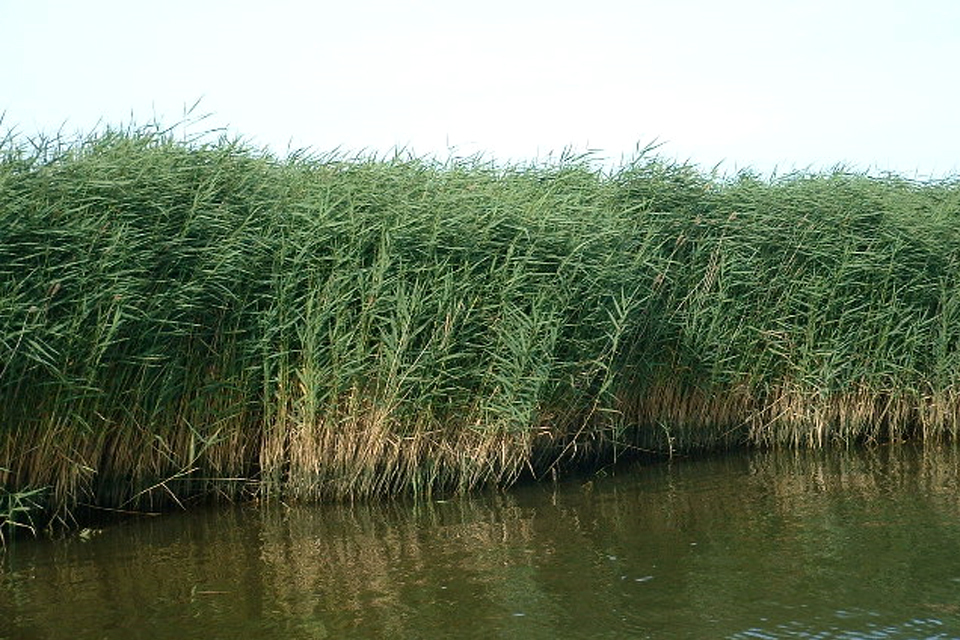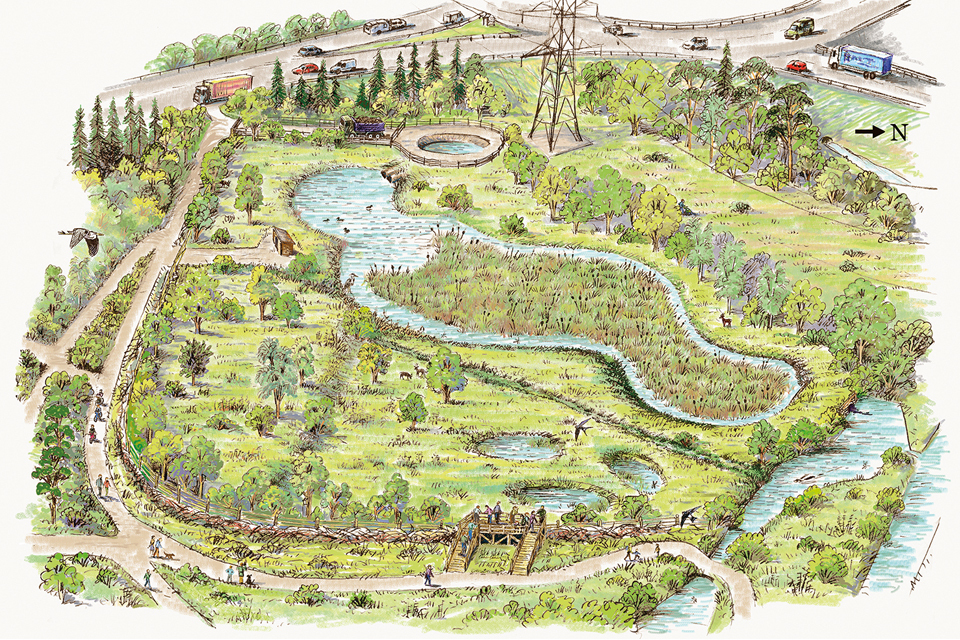Works starts on reedbed to filter water at Devon beauty spot
We're delivering a giant reedbed filter system which will help to keep water clean at Stover Lake and provide valuable habitat for wildlife.

A swan on Stover Lake
The sustainable scheme is designed to capture and filter water runoff from the A38, nearby industrial sites and farmland before it enters the lake. The water can carry pollutants such as oil and metal residue into the lake and this has contributed to the poor water quality and reduced diversity of wildlife.
We’re joining forces with Stover Country Park and Devon County Council to deliver the project, which is also supported by Natural England.
Around 3,800 square metres of reedbed will be planted upstream of the lake to act as a natural barrier and filter pollutants. It will also provide varied habitat for a range of wildlife. At the same time the park, which is designated a Local Nature Reserve and a Site of Special Scientific Interest (SSSI), will be improving sustainable drainage at the site.
Highways England Project Manager Darren Painter said:
We are delighted to be able to work with our partners on such a worthwhile environmental scheme. When completed, this work will make Stover Park more enjoyable for visitors as well as tackling pollution and providing valuable habitat for wildlife.
The twin reedbed system starts by providing a physical barrier to polluted water, then following absorption, microbes work to break down even more pollutants resulting in clearer water which will help the lake to regenerate and flourish.
It is hoped that by reducing pollution, white-water lilies, not seen at the lake since 2007, will once again cover the lake surface providing suitable habitat for a variety of dragonflies and damselflies. The reedbeds themselves will also support a range of birds, insects, reptiles, amphibians and mammals such as water rail, hairy dragonfly, grass snake, Daubentons bat and otter.

A reedbed at Stover Lake
Rob Ballard, Ranger at Stover Country Park, said:
The construction of the reedbed system will help the regeneration of the lake, its water plants and waterfowl. The creation of this new habitat will enhance biodiversity, the landscape and improve the SSSI status. Visitors and school groups will be able to view the reed bed creation from a special interpretation viewing area.
Councillor Roger Croad, Devon County Council Cabinet Member with responsibility for Environmental Services, added:
The County Council is rightly proud of Stover Country Park. It’s an important habitat for wildlife and is extremely popular with visitors so we want to ensure it provides the best possible environment. This scheme will make a huge difference to the water quality of the lake at Stover which will benefit everyone.

Diagram showing plans for Stover Lake reedbeds
Work at the site will start in late November 2018 and is expected to continue for up to seven months. To create the reed bed 6,000 tonnes of soil will be removed, and four varieties of reed native to the area will be planted.
For most of the construction work it will be necessary to close the cycle path running through the park. Closures will be publicised in advance and posters showing a diversion route will be on display.
Some of the existing on road drainage will be modified to connect with the reed beds which will involve an expected eight nights of closures on the A38 or the roundabout slip roads.
We’re committed to a national Biodiversity Plan which is being supported by a £30 million national investment programme over the next five years.
The plan recognises road verges and associated land can be managed to provide areas of habitat, relatively free from human access, that may be scarce in the surrounding landscape.
These road verges can also be used to connect fragmented habitats in the wider landscape, enabling plant and animal populations to move and interact, and so become stronger and more resilient.
General enquiries
Members of the public should contact the Highways England customer contact centre on 0300 123 5000.
Media enquiries
Journalists should contact the Highways England press office on 0844 693 1448 and use the menu to speak to the most appropriate press officer.